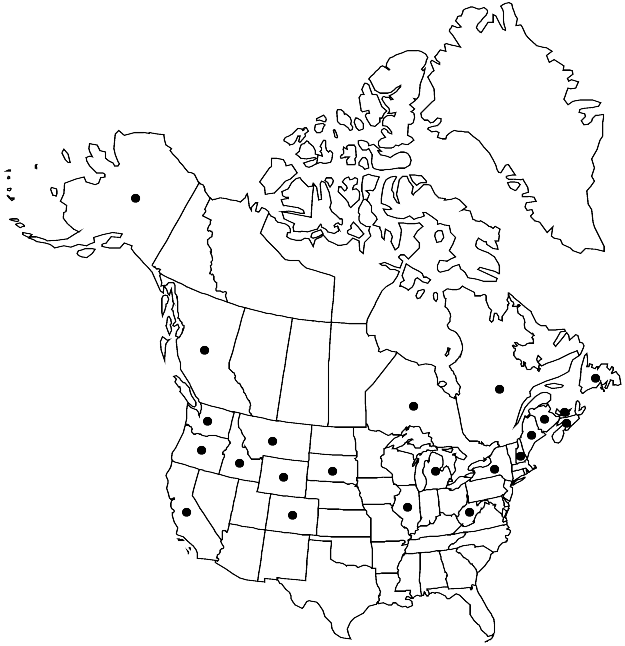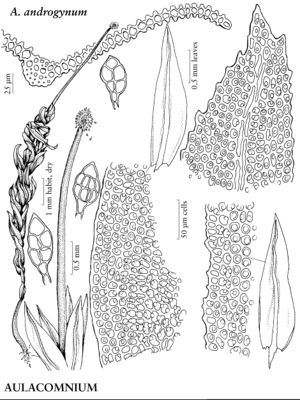Difference between revisions of "Aulacomnium androgynum"
Sp. Musc. Frond. Suppl. 3(1,1,Aulacomnion): 2. 1827.
FNA>Volume Importer |
FNA>Volume Importer |
||
| Line 14: | Line 14: | ||
|label=Selected by author to be illustrated | |label=Selected by author to be illustrated | ||
}} | }} | ||
| − | |basionyms={{Treatment/ID/ | + | |basionyms={{Treatment/ID/Basionym |
|name=Bryum androgynum | |name=Bryum androgynum | ||
|authority=Hedwig | |authority=Hedwig | ||
| + | |publication_title=Sp. Musc. Frond., | ||
| + | |publication_place=178. 1801 | ||
}} | }} | ||
|synonyms= | |synonyms= | ||
| Line 55: | Line 57: | ||
|publication year=1827 | |publication year=1827 | ||
|special status=Endemic;Selected by author to be illustrated | |special status=Endemic;Selected by author to be illustrated | ||
| − | |source xml=https://jpend@bitbucket.org/aafc-mbb/fna-data-curation.git/src/ | + | |source xml=https://jpend@bitbucket.org/aafc-mbb/fna-data-curation.git/src/f6b125a955440c0872999024f038d74684f65921/coarse_grained_fna_xml/V28/V28_143.xml |
|genus=Aulacomnium | |genus=Aulacomnium | ||
|species=Aulacomnium androgynum | |species=Aulacomnium androgynum | ||
Revision as of 19:44, 24 September 2019
Plants 1–2 cm, in erect, basal tufts or cushions, green or brownish green. Stems yellow or brownish green; cross section irregularly pentagonal, cortical cells in 2–4 layers, medulla cell walls thick or thin, central strand cells small; rhizoids between leaves near base of plants. Leaves distant near base of plants, more congested toward apex, not much different when dry or moist, oblong-lanceolate, widest above base, somewhat concave to keeled; base slightly rounded to insertion; margins revolute to mid leaf, weakly serrulate proximally, irregularly serrulate toward apex; apex acute; costa flexuose; laminal cells round or nearly oblong, papillae blunt; basal cells 1-stratose, hyaline. Specialized asexual reproduction by small fusiform propagula in tight globose cluster. Perigonia budlike in series down stem; paraphyses of 7–10 cells. Perichaetia with paraphyses of 9–12 cells. Seta 1–1.5 cm. Capsule suberect or horizontal, 2.5–3 mm; operculum conic, rostrum short, blunt; endostome cilia nodose. Spores 10–20 µm, smooth.
Habitat: Organic soil, rotting logs, mineral soil over rock
Elevation: low to moderate elevations
Distribution

B.C., N.B., Nfld. and Labr. (Nfld.), N.S., Ont., P.E.I., Que., Alaska, Calif., Colo., Idaho, Ill., Maine, Mich., Mont., N.H., N.Y., Oreg., S.Dak., Wash., W.Va., Wyo.
Discussion
The propagula of Aulacomnium androgynum, borne in spheric clusters at the ends of naked branches, are a distinguishing feature. This is the only species of Aulacomnium with small lanceolate leaves that are serrulate mainly beyond mid leaf and shortly rounded at the insertion. The species also lacks a hyalodermis. The distal laminal cells of A. androgynum are round or ± oblong, 1-papillose on abaxial and adaxial walls, with blunt, long papillae and thick walls. The basal laminal cells of the inner perigonial leaves are elongate to rhomboidal, large, and smooth.
Selected References
None.
